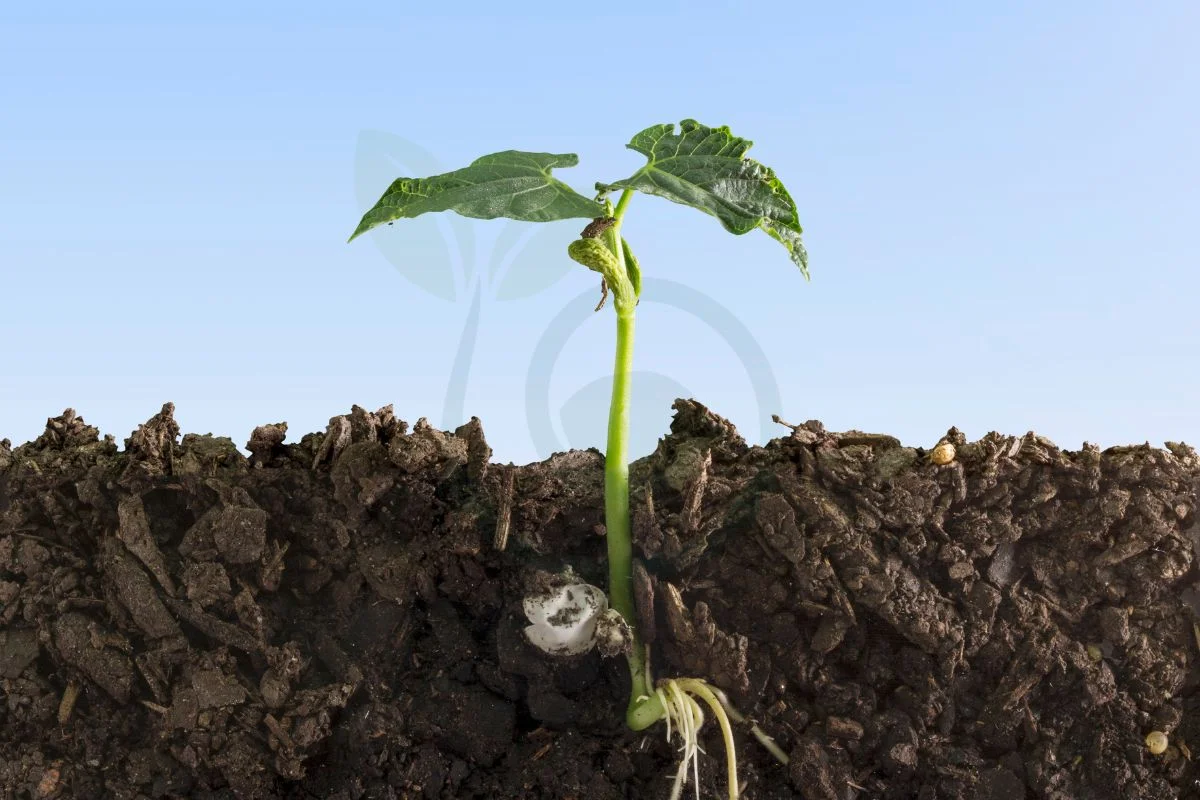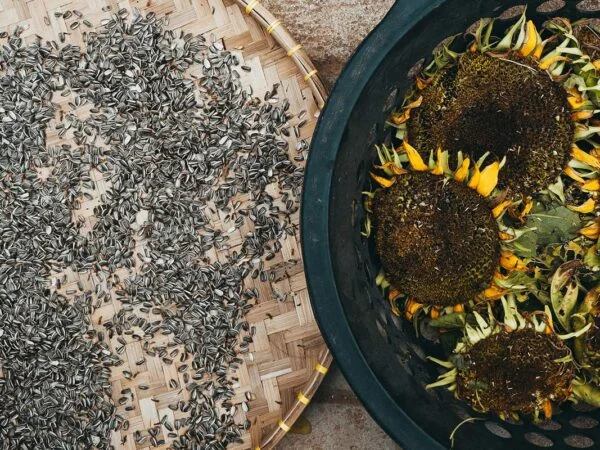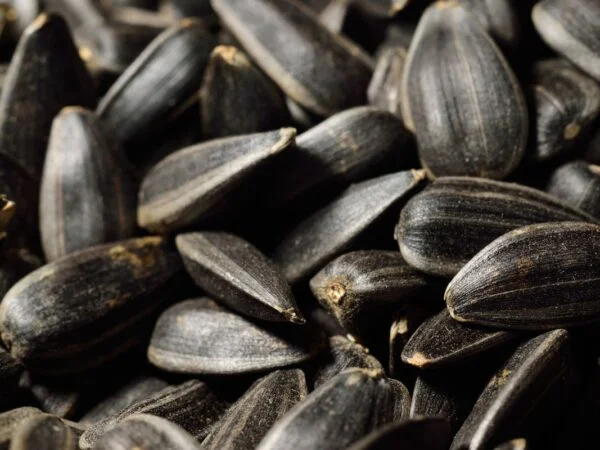Wondering, "How deep do squash roots go?" You're in the right place! I'll provide you with all the information you need to understand the root depth of squash plants and other rooted crops.
Squash roots typically penetrate the ground to depths of around 18 to 24 inches. However, this can vary depending on various factors such as soil type, moisture levels, and the specific variety of squash being grown. Deeper-rooted varieties with main roots may extend even further into the depths of the soil, especially if conditions are favorable. Understanding the depth of squash roots is crucial for proper irrigation and nutrient management to support healthy plant growth and optimal yields.
For more insights on maximizing the growth of your squash plants, cucurbits including tips on soil preparation, watering techniques, and pest control strategies, stay tuned. There's a wealth of knowledge awaiting you to ensure a successful squash harvest!
Key Takeaways
- Deep Roots: Squash plants can develop deep roots, reaching up to 3 feet in length into the soil, making proper soil preparation crucial for healthy growth.
- Soil Care: Adequate soil preparation, including loosening the soil and adding organic matter, promotes strong root development and overall plant health.
- Raised Beds: Utilizing raised bed gardening can improve drainage, prevent root compaction, and encourage deeper root penetration for squash plants by enhancing main roots and laterals.
- Watering Strategy: Consistent watering and providing sufficient nutrients are essential for supporting deep main roots growth and maximizing squash plant productivity.
- Optimal Growth: To maximize root growth, ensure proper spacing between plants, adequate sunlight exposure, and regular maintenance of soil moisture levels.
- Container Gardening: In container gardening, choose large enough containers to accommodate squash roots, use well-draining soil, and monitor watering to support healthy root development.
Squash Root Basics
Growth Pattern
Root vegetables like squash primarily root in the top 6 inches of soil, where most nutrients are concentrated. Deeper soil allows for better absorption of essential nutrients crucial for squash plant growth up to feet below the surface. Understanding the distribution of squash roots is key to strategically planting them in optimal locations.
Depth Requirements
Each vegetable, including the squash vine, has specific root depth requirements. Taproots, such as those found in squash plants, tend to delve deeper into the soil for stability and access to vital nutrients. The depth of the soil directly influences the root system length and overall health of the squash plant.
Importance of Depth
The depth of the soil plays a significant role in determining the availability of nutrients for squash roots. Deeper roots not only aid in nutrient absorption but also provide stability to the plant during adverse weather conditions. Ensuring that squash roots reach an adequate depth is crucial for optimal growth and yield.
Soil Preparation
Double Digging
Double-digging helps in removing obstacles for root growth, creating a nutrient-rich environment for deeper roots. This technique involves loosening the soil to a depth of two spades, allowing roots to penetrate easily. By breaking up compacted soil, double digging improves aeration and water infiltration.
It also enables gardeners to assess soil conditions thoroughly and make necessary amendments. This process is particularly beneficial for squash plants with their extensive root systems that require ample space and nutrients to thrive. Overall, double digging sets the foundation for healthy root development in squash plants.
Soil Amendments
Enhancing soil conditions through amendments like peat moss and lime can balance pH levels essential for optimal root growth. Adding rock phosphate enriches the soil with crucial nutrients such as phosphorus, promoting robust root development. Timely incorporation of compost and fertilizer provides ongoing nourishment for squash plants.
These amendments play a vital role in ensuring that the soil surface remains fertile and conducive to deep root penetration. They address specific deficiencies in the soil composition, supporting the overall health and vigor of squash plants by providing essential nutrients they need to flourish.
Ensuring Drainage
Creating tapered raised beds is essential for maintaining proper water drainage around squash plants. Adequate drainage prevents waterlogging, which can lead to root rot and other issues detrimental to plant health. Properly designed raised beds promote efficient water flow away from the plant roots.
Good drainage is crucial for preventing stagnant water around the roots, which can suffocate them and inhibit growth. By ensuring effective drainage systems, gardeners safeguard their squash plants from potential damage caused by excess moisture in the soil.
Raised Bed Gardening
Depth for Squash
Squash plants require deep soil for optimal growth, with roots delving up to 24 inches underground. Deeper roots provide stability, aiding in anchoring squash plants during windy conditions. Understanding the depth of squash roots is essential for effective cultivation planning and ensuring healthy plant development.
Bed Height
Bending Considerations
Bending supports are crucial in raised bed gardening, especially for tall crops like squash. These supports prevent toppling over, maintaining plant stability and preventing damage. By ensuring even growth and proper sunlight exposure, bending supports play a vital role in the successful cultivation of squash plants.
Cross-Supports
Cross-supports are integral components that enhance structural stability in raised bed gardens, particularly for tall crops such as squash. By providing additional support, cross-supports prevent bending and breaking under the weight of the plants. This promotes healthy growth and higher yields by maintaining the integrity of the plant structure.
Material Choices
When selecting materials for raised bed gardening supports, it is essential to choose sturdy options that ensure long-lasting durability. Common choices include wood, metal, or PVC, each offering varying levels of strength and longevity based on individual requirements. The material chosen significantly impacts the overall strength and lifespan of the support structures in a garden setting.
Water and Nutrients
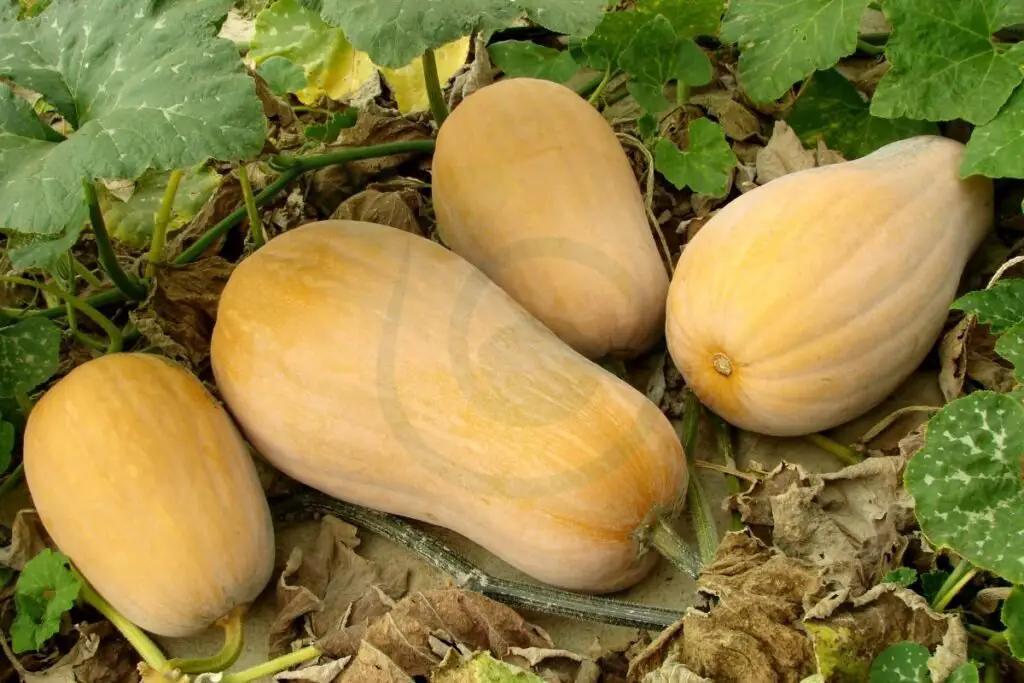
Absorption Efficiency
Deep roots play a crucial role in enhancing the absorption efficiency of nutrients and water. This efficient absorption process is vital for the overall health and productivity of squash plants. The depth of the roots directly impacts how well the plant can absorb essential nutrients and moisture from the soil.
Enhanced root depth translates to improved nutrient uptake, resulting in healthier and more robust squash plants. When roots delve deep into the soil, they can access a wider range of nutrients and water sources, ensuring the plant's optimal growth and development. A well-established root system is key to maximizing the plant's ability to thrive in various environmental conditions.
Enhancing Soil
Enhancing the soil with organic matter is a beneficial practice that significantly contributes to promoting healthy squash growth. Organic matter enriches the soil, enhancing its structure and fertility, which are essential factors for robust root development. By incorporating organic materials such as compost or fertilizer, gardeners can improve soil quality, providing an ideal environment for squash plants to flourish.
- Organic matter boosts plant growth
- Improves soil structure and fertility
- Essential for healthy plant growth
Maximizing Root Growth
Optimal Conditions
Providing optimal soil depth is crucial for healthy root growth and development. It allows roots to penetrate deep into the ground, accessing essential nutrients and water. Ideal conditions include a minimum soil depth of at least 12 inches, allowing roots to spread out comfortably. This promotes robust root growth and enhances nutrient uptake, leading to healthier plants with improved resistance to environmental stressors.
Ensuring quality soil is equally important in fostering strong root systems. Soil rich in organic matter provides a favorable environment for root development by offering necessary nutrients and promoting microbial activity. This creates a symbiotic relationship between roots and soil organisms, enhancing nutrient availability for plants. By maintaining optimal soil conditions, gardeners can cultivate thriving plants that exhibit vigorous growth and increased yields.
Healthy Root Support
Strong root support systems play a crucial role in ensuring plant stability and longevity. Adequate support prevents plants from toppling over during adverse weather conditions or when bearing heavy fruits. Healthy roots not only anchor the plant securely but also contribute to overall vigor and resilience. By establishing proper support mechanisms such as trellises, stakes, or cages, gardeners can safeguard healthy root development and promote optimal plant growth.
Furthermore, providing adequate water and nutrient supply is essential for sustaining healthy root systems. Water facilitates nutrient absorption by roots, enabling efficient transport throughout the plant. Nutrients like nitrogen, phosphorus, and potassium are vital for root development and overall plant health. Maintaining a balanced watering schedule and applying appropriate fertilizers ensure that roots receive the necessary resources for continuous growth and vitality.
Container Gardening Tips
Vegetables in Planters
Vegetables in planters thrive with sufficient soil depth to support root growth. The depth of the planter directly impacts the health and productivity of the plants. Choosing an appropriate planter size is crucial for successful vegetable cultivation.
- Pros: Better control over soil quality, easy to move, less weeding required.
- Cons: Limited space for roots, frequent watering needed, may dry out quickly.
Elevated Containers
Elevated containers provide improved drainage and aeration for plant roots. By elevating the plants, the risk of issues like waterlogging and root diseases is significantly reduced. These containers are perfect for growing vegetables in limited spaces while ensuring optimal conditions for root development.
- Elevating plants promotes air circulation around the roots.
- Elevated containers prevent pests and ground-dwelling critters from accessing plants easily.
Arranging Your Garden
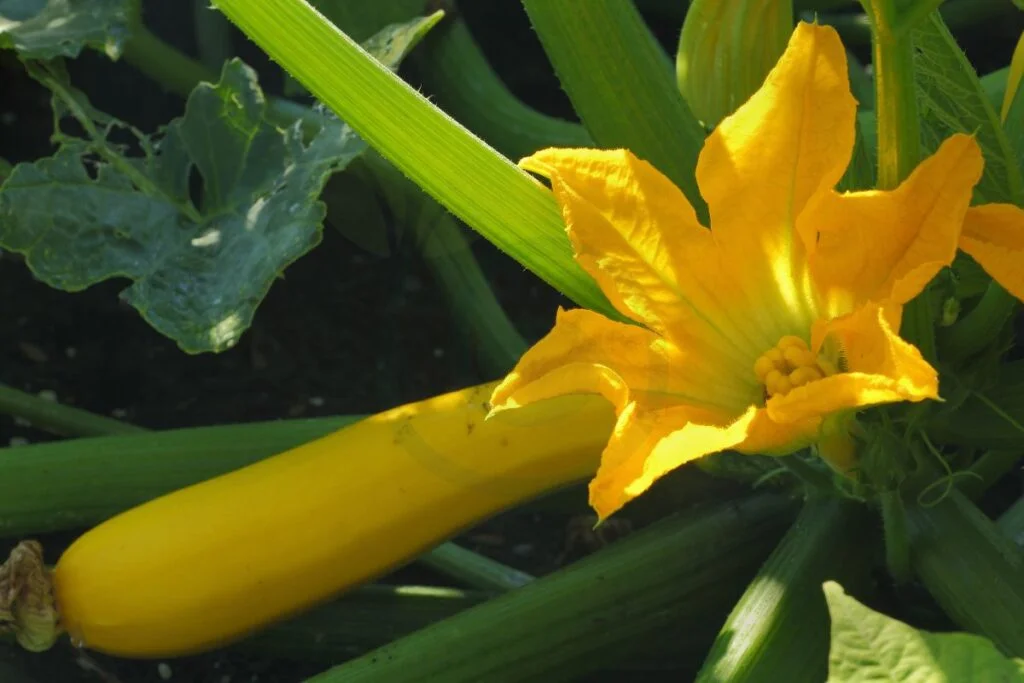
Crop Height
Plant growth influences root depth requirements significantly. Taller crops like corn or sunflowers demand deeper soil for stability and better access to essential nutrients. By understanding the height of different crops, gardeners can pinpoint suitable planting spots in their gardens.
Sunlight Management Adequate sunlight exposure is crucial for plant health, making proper root depth essential. Managing sunlight effectively helps optimize photosynthesis, which is vital for plant growth and development. The way gardeners manage sunlight directly impacts root health and the overall well-being of plants.
Popular Vegetables Guide
Soil Depth Needs
Different crops have varying soil depth requirements for root growth. Carrots, for instance, need deeper soil compared to lettuce. Soil depth plays a crucial role in providing stability and nutrients to plants. Matching the soil depth to the specific crop's needs is vital for ensuring healthy growth and high yields.
When planning your garden layout, consider the root depth required by each vegetable. For example, tomatoes have deep roots that require ample space underground. In contrast, shallow-rooted vegetables like radishes thrive in shallower soil. By understanding the soil depth needs of different crops, you can optimize your garden space effectively.
- Understanding root depth requirements
- Importance of matching soil depth to crop needs
- Impact of soil depth on plant health and productivity
Maturity Heights
Knowing the maturity heights of vegetables is essential for determining their root development patterns. Taller plants like corn or beans often have deeper roots to support their height and nutrient uptake. In contrast, bush varieties such as peppers have shallower roots due to their compact size.
Consider the maturity heights of vegetables when planning your garden to ensure adequate space for root growth. Taller plants may require additional support structures to prevent them from toppling over during strong winds or heavy rainfall. By factoring in the maturity heights, you can create a well-balanced garden layout that promotes optimal plant growth.
- Planning based on maturity heights
- Influence of mature plant height on root development
- Importance of considering support requirements for taller plants
Supporting Squash Health
Deep Roots Benefits
Deep roots provide plants with stability and access to nutrients. These extended root systems anchor the plant securely in the soil, preventing it from toppling over during strong winds or heavy rain. Deep roots reach deeper layers of the soil, where essential nutrients are abundant.
The benefits of deep roots extend beyond stability. They enable squash plants to withstand periods of drought by tapping into water reserves deep underground. This enhanced ability to access water allows the plant to survive prolonged dry spells without experiencing significant stress. Moreover, deep roots facilitate efficient nutrient absorption, ensuring that the plant receives a steady supply of essential minerals for growth and development.
Understanding the importance of deep root systems is crucial for cultivating healthy and resilient squash plants. By promoting deep root growth through appropriate watering practices and soil management, gardeners can enhance the overall health and productivity of their squash crops.
Nutrient Uptake
Deep roots play a vital role in enhancing nutrient uptake efficiency for squash plants. These extensive root systems have a larger surface area than shallow roots, allowing them to absorb a greater amount of nutrients from the soil. As a result, squash plants with deep roots exhibit improved vigor and vitality compared to those with shallow root systems.
Efficient nutrient uptake is directly linked to the overall health and productivity of squash crops. When plants can effectively absorb essential nutrients such as nitrogen, phosphorus, and potassium, they experience accelerated growth rates and increased yield potential. Deep-rooted squash plants are better equipped to withstand environmental stresses and pest pressures due to their robust nutrient uptake capabilities.
Nutrient uptake is optimized when squash plants develop deep and well-established root systems. By providing adequate space for root growth and ensuring proper soil fertility, growers can encourage the formation of extensive root networks that support optimal nutrient absorption. This emphasis on promoting deep roots ultimately contributes to healthier, more productive squash plants in the garden or field.
Closing Thoughts
You've learned about the importance of understanding squash roots, preparing your soil, and maximizing root growth for a thriving garden. By implementing the tips shared in this guide, you can ensure your squash plants receive the necessary nutrients and support for healthy root development. Remember to arrange your garden strategically and consider container gardening for limited spaces.
Now, take what you've discovered here and apply it to your own gardening practices. Experiment with different techniques, keep an eye on your plants' health, and enjoy the process of nurturing your squash from seed to harvest. Your dedication will pay off with bountiful yields and a flourishing garden that showcases the results of your efforts.
Frequently Asked Questions
How deep do squash roots typically grow?
Squash roots can extend up to 3 feet deep into the soil, depending on the variety. It's essential to provide adequate space for root development to ensure healthy growth and optimal nutrient uptake.
What are the benefits of raised bed gardening for squash plants?
Raised bed gardening offers improved drainage, better soil aeration, and easier weed control for squash plants. The elevated structure also warms up faster in spring, extending the growing season and promoting healthier root development.
How often should I water my squash plants?
Squash plants require consistent moisture levels, so aim to water them deeply once or twice a week, depending on weather conditions. Ensure the soil is evenly moist but not waterlogged to prevent root rot and promote vigorous growth.
What nutrients are crucial for maximizing squash root growth?
Squash plants benefit from a balanced fertilizer rich in nitrogen, phosphorus, and potassium to support healthy root development. Incorporating organic matter like compost can also enhance soil structure and provide essential micronutrients for robust squash roots.
Can I grow squash in containers?
Yes, you can successfully grow squash in large containers with proper drainage holes. Choose compact or bush varieties suited for container gardening and ensure the container is at least 24 inches deep to accommodate the extensive root system of squash plants.
Image Source: Paid image from CANVA

